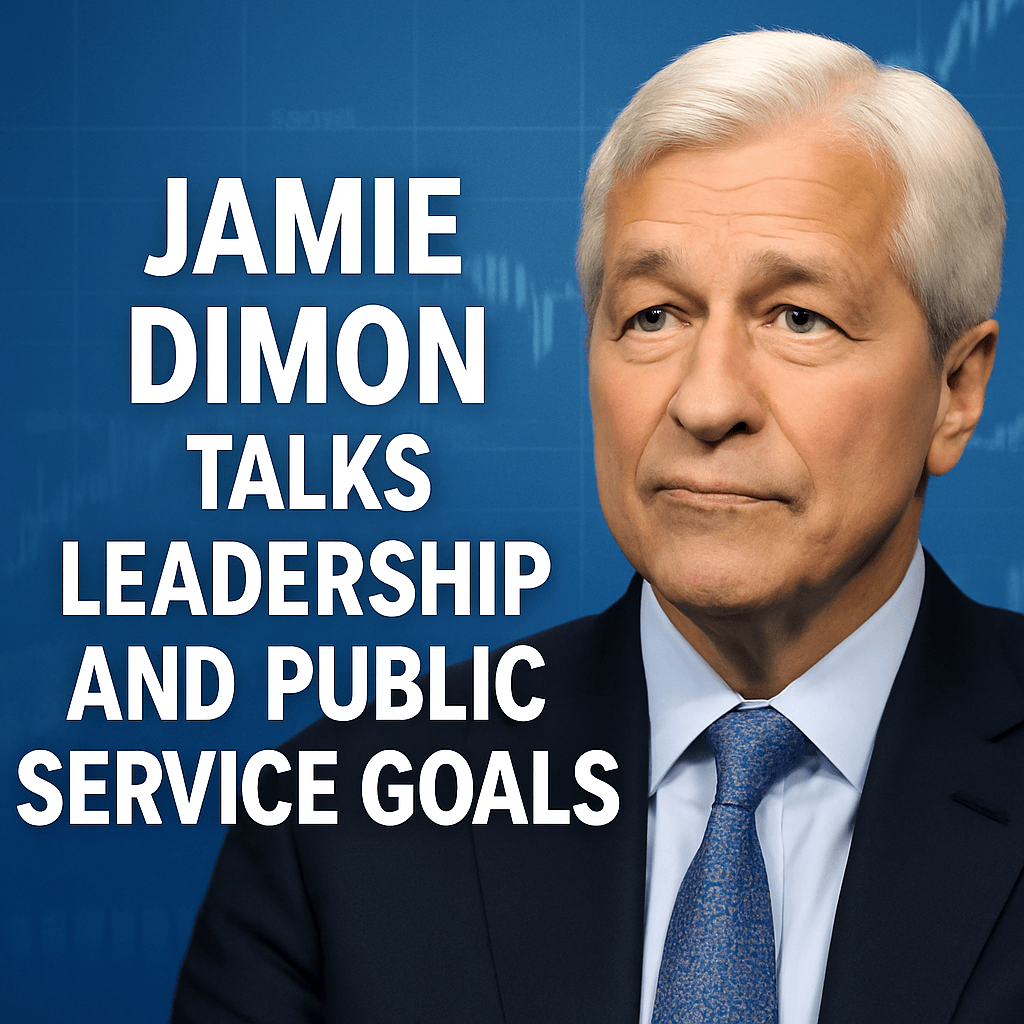Jamie Dimon Talks Leadership and Public Service Goals

JPMorgan Chase CEO Jamie Dimon shared insightful leadership lessons during a recent interview at the Reagan National Economic Forum. His remarks shed light on the principles that guide effective leadership in a rapidly evolving global financial landscape.
The Importance of Engagement and Observation
When discussing the fundamentals of successful leadership, Dimon emphasized the necessity of active engagement within an organization. “Get out, get out, get out, get out, talk to people, talk to clients. I talk to everybody,” he stated, underscoring the importance of being accessible and approachable.
This perspective aligns with the concept of stakeholder engagement, which has gained traction in corporate governance discussions. By actively listening to clients and employees, leaders can cultivate a culture of transparency and trust. Dimon drew parallels to historical figures, noting that President Dwight Eisenhower often consulted with leaders from opposing parties, highlighting the playbook of inclusivity.
Curiosity and Openness to Diverse Perspectives
Dimon’s leadership philosophy is built on the idea of constant observation. He advocates for not just looking out for rivals but also seeking diverse opinions. “Observe, observe, observe, and have all your people do it. It’s a never-ending process,” he noted. This approach serves as a buffer against complacency in a business environment where competition is fierce and global in scope.
He explained that complacent and bureaucratic systems can contribute to the downfall of once-thriving companies. Dimon identified key issues such as arrogance and greed as primary culprits causing leaders to ignore critical feedback that could have led to course corrections.
Honesty Over Pleasantries
One of Dimon’s most striking assertions is his belief in the necessity of brutal honesty in the corporate environment. “When people say to me, put a good foot forward, I always say, don’t put a good foot forward, put the truth forward, 100% the truth,” he emphasized. This statement emphasizes the importance of transparency and accountability, which are essential traits for sustainable leadership.
Dimon further elaborated that leaders should strive to avoid creating an environment where employees feel pressured to present a facade to their superiors. He noted, “People don’t want to work for jerks and don’t want to work for bosses who blame others.” This insight reflects a growing body of research suggesting that workplace culture significantly impacts productivity and employee satisfaction.
Traits of Effective Leaders
Along with promoting honesty, Dimon underscored the significance of traits such as humility and curiosity. Humility fosters connection and respect, while curiosity motivates leaders to continually learn and adapt. This combination not only enhances employee morale but also contributes to a more innovative corporate culture.
Speculations on Public Service
Dimon’s potential transition from the corporate sector to public service has been a topic of discussion, especially considering his long tenure as one of Wall Street’s most influential leaders. At 69, he reaffirmed his commitment to stepping down in the next two to four years. Yet, his interest in public service lingers.
Earlier this year, Dimon acknowledged he had contemplated a run for the presidency but opted against it to prioritize family commitments. Additionally, former President Donald Trump had considered Dimon for a Treasury secretary position, further fueling speculation regarding Dimon’s political aspirations.
What Would Lure Him to Public Service?
During the forum, Dimon revealed the conditions under which he might consider entering public service: “Alright, ready? I’ll tell you: if I thought I could really win, which I don’t think I could.” This hint of humility and self-awareness reflects a deeper understanding of the complexities of public service and electoral politics.
Conclusion
In an era where corporate accountability and integrity are under scrutiny, Jamie Dimon’s leadership principles resonate deeply. His clear stance on honesty, active engagement, and openness to various perspectives presents a blueprint for effective governance in both the private and public sectors. As Dimon prepares for the next chapter of his career, his insights will undoubtedly continue to shape discussions around leadership and public service.